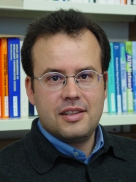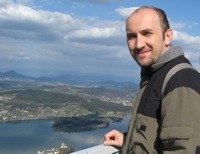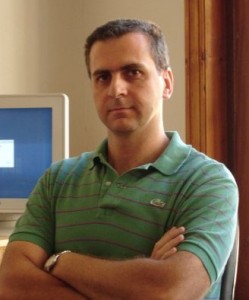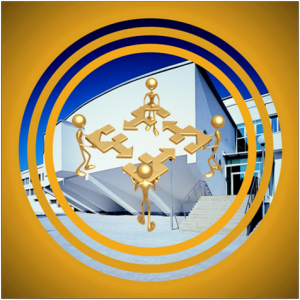Der Rückblick zum TEWI-Kolloquium von Eckehard Steinbach, TU München am 27.03.2012 beinhaltet die Videoaufzeichnung sowie die Folien:
Video
[iframe height=“350″ src=“http://video.aau.at/video.php?video=ftf_steinbach.mp4″]
Slides
Abstract
True immersion into a distant environment and efficient distributed collaboration require the ability to physically interact with remote objects and to literally get in touch with other people. Touching and manipulating objects remotely becomes possible if we augment traditional audiovisual communications by the haptic modality. Haptic communications is a relatively young field of research that has the potential to substantially improve human–human and human–machine interaction.
In this talk, we address perceptual coding of haptic information and the transmission of haptic data streams over resource-constrained and potentially lossy networks. In this context, we also briefly discuss the need for objective quality metrics for haptic communication. Throughout the talk, we stress the fact that haptic communications is not meant as a replacement of traditional audiovisual communications but rather as an additional dimension for telepresence that will allow us to advance in our quest for truly immersive communication.
Eckehard Steinbach (IEEE M’96, SM’08) studied Electrical Engineering at the University of Karlsruhe (Germany), the University of Essex (Great Britain), and ESIEE in Paris. From 1994 until 2000 he was a member of the research staff of the Image Communication Group at the University of Erlangen-Nuremberg (Germany), where he received the Engineering Doctorate in 1999. From February 2000 to December 2001 he was a Postdoctoral Fellow with the Information Systems Laboratory of Stanford University. In February 2002 he joined the Department of Electrical Engineering and Information Technology of Munich University of Technology (Germany), where he is currently a Full Professor for Media Technology. His current research interests are in the area of audio-visual-haptic information processing and communication as well as networked and interactive multimedia systems.


 Unycom GmbH ist ein spezialisierter Anbieter von unternehmensweiten Software-Lösungen in den Bereichen Intellectual Property Management für Unternehmen und Patentanwaltskanzleien. Der Hauptsitz der Unycom GmbH befindet sich mit rund 70 Angestellten in Graz, Österreich. Darüber hinaus haben wir Niederlassungen in München, Deutschland und San Francisco, Kalifornien.
Unycom GmbH ist ein spezialisierter Anbieter von unternehmensweiten Software-Lösungen in den Bereichen Intellectual Property Management für Unternehmen und Patentanwaltskanzleien. Der Hauptsitz der Unycom GmbH befindet sich mit rund 70 Angestellten in Graz, Österreich. Darüber hinaus haben wir Niederlassungen in München, Deutschland und San Francisco, Kalifornien.
 Abstract: Ein komplexes System besteht aus miteinander verbundenen Teilen. Das System als Ganzes zeigt eine oder mehrere emer- gente Eigenschaften, welche nicht einfach aus den Eigenschaf- ten der einzelnen Teile abgeleitet werden können.
Abstract: Ein komplexes System besteht aus miteinander verbundenen Teilen. Das System als Ganzes zeigt eine oder mehrere emer- gente Eigenschaften, welche nicht einfach aus den Eigenschaf- ten der einzelnen Teile abgeleitet werden können. Abstract:
Abstract:
